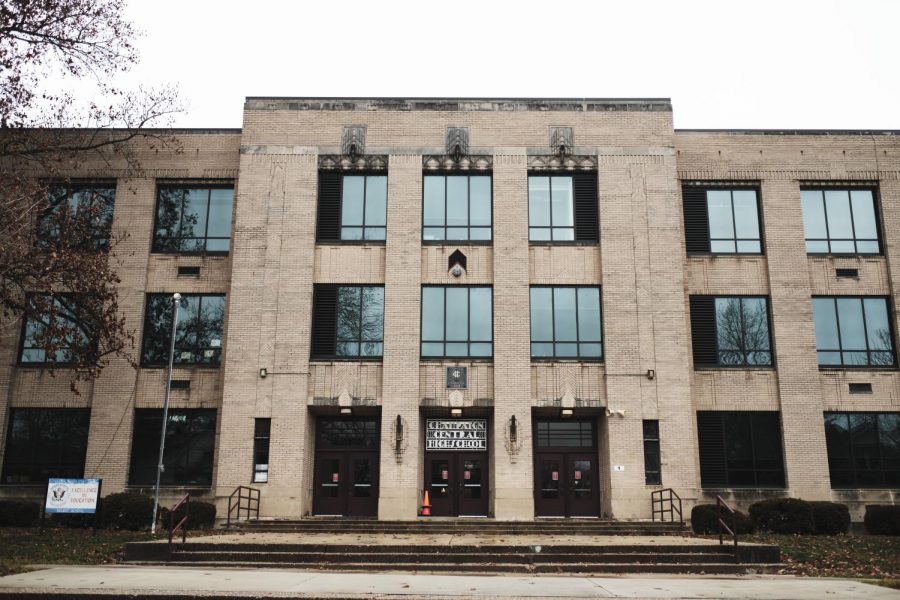Immigration Law Clinic educates high school students
The exterior of Champaign Central High School located at 610 W. University Ave. on Sunday. The College of Law’s immigration clinic has given presentations throughout November to the high school about immigration resources.
Dec 2, 2019
Throughout the month of November, the College of Law’s immigration clinic has given presentations to a local Champaign high school regarding immigration resources.
The Immigration Law Clinic, located in the College of Law, opened in fall 2019. The clinic welcomes students and clients in central Illinois to assist with family immigration issues.
Alana Hart, graduate student and research assistant in Law, has been giving PowerPoint presentations to students at Champaign Central High School.
“We tried to interact with them a little bit,” Hart said. “So we will have one big topic and then a summary slide where we go around and they summarize for a friend what they got out of it. Then Lauren (Aronson) and I walk around and talk to individual students.”
Aronson, associate clinical professor, started to develop the presentation by contacting two English Second Language teachers at Central High School. At the initial brainstorming meeting, all three individuals outlined ideas and topics that would be useful to the students.
Get The Daily Illini in your inbox!
Hart’s role is to translate the information on the presentation to Spanish for students who need it.
“A lot of these topics deal with complex legal issues and complex legal definitions, so I am trying, through a PowerPoint and through the interactive presentation, to communicate this information in Spanish,” Hart said.
Hart said high school students show mixed emotions during the presentation.
“Especially when we start talking about documents and court, all of a sudden you see kids’ eyes start to focus,” Hart said. “I had one student who started to cry when we started to talk about the immigration court.”
Hart said the purpose of the presentation is to help students at the high school understand their rights and what it means to be a student who does not have status in the United States. That includes the understanding of government documents and court procedures.
The presentations are free of cost; the clinic does not charge for its services. It also does not require any funding.
Aronson said she hopes this will initiate a conversation with the importance of being aware of an individual’s rights.
“Sometimes the issues that the kids have might be within their own family,” Aronson said. “So a way for them to have someone to talk to outside of their family can be really helpful.”






